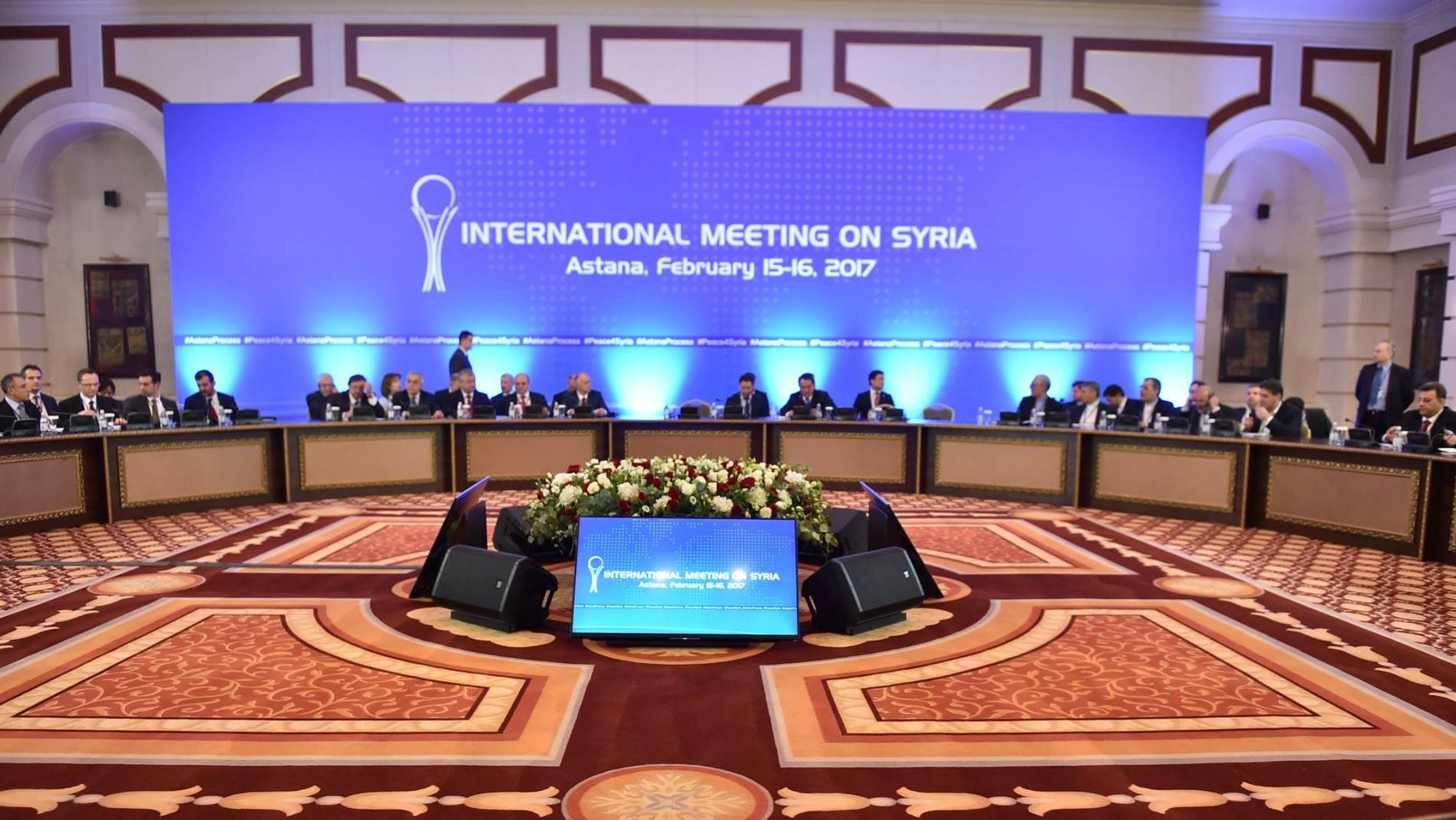The delegation of the Syrian Arab Republic, headed by the Deputy Minister of Foreign Affairs and Expatriates, Dr Ayman Sousan, held a meeting in Nur-Sultan Tuesday with the Russian and United Nations delegations, within the framework of the seventeenth Astana meeting about Syria. The delegation of the UN, which enjoys observer status in the Astana talks, was headed by the Deputy Special Envoy of the Secretary-General of the United Nations to Syria Khawla Matar.
During the meeting, they discussed the situation in Syria, where Dr. Sousan stressed the importance of the briefings of the United Nations Special Envoy to Syria to be objective and impartial and describe the facts as they are in order to preserve the credibility of the United Nations. He also pointed out that economic terrorism, illegitimate coercive measures, and the theft of Syrians’ wealth by the American and Turkish occupations are the reason for the suffering of the Syrians.
Read Also: Delegation of Syrian Arab Republic Arrives in Nur-Sultan for Astana Talks
Sousan referred to Syria’s initial positions on the issue of bringing humanitarian aid into Syria across the border. He also indicated Syria’s readiness to continue making all efforts to end the suffering of the missing and kidnapped by terrorist organizations. He said that the Turkish regime puts obstacles in the way of ending this tragedy.
In turn, Matar affirmed her great appreciation for the efforts made by the Syrian state and its cooperation with international organizations to put an end to the suffering of the kidnapped people.
The Russian Delegation
The Syrian delegation met also with the Russian delegation in Nur-Sultan, headed by the special envoy of the Russian President to Syria, Alexander Lavrentiev.
The two delegations discussed the items on the meeting’s agenda, where Dr. Sousan stressed that the U.S. and Turkish occupations and their subversive policies, including illegal unilateral coercive measures, are the main reason behind Syrians’ suffering. He added that these illegal measures are prolonging the crisis, in an attempt to impede the consolidation of stability in Syria.
With regard to the humanitarian aid, Sousan stressed Syria’s principled position rejecting the entry of aid across the border, especially since the Western powers did not abide by their commitments under Resolution 2585. He stressed that the Syrian state would continue to provide aid to those in need without any discrimination.
For his part, Lavrentiev reiterated Russia’s rejection of everything that might prejudice the sovereignty and territorial integrity of Syria and the importance of joint action to confront the policies of some Western countries that seek to exploit the humanitarian situation, including continuing to impose coercive measures to serve their agendas.
This article was edited by The Syrian Observer. The Syrian Observer has not verified the content of this story. Responsibility for the information and views set out in this article lies entirely with the author.


